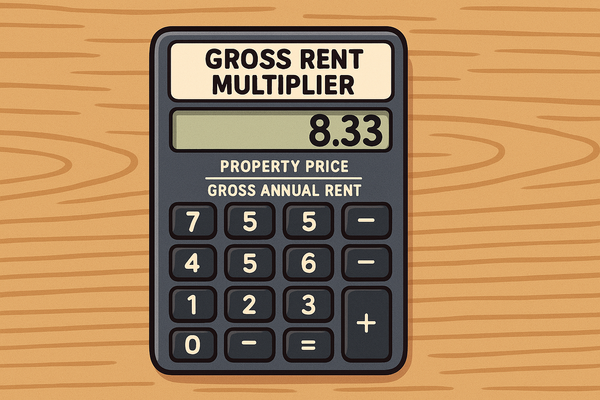Tennessee's Squatters Rights Guide: The Reality Behind Squatters Rights 🏡
The Accelerated Path to a successful adverse possession claim in TN: 7 consecutive years with "color of title" (some document that appears to give title, even if invalid)

From what used to be a 4-6 week process in Tennessee (much like many other states) to remove a squatter from your property, has recently been reduced (depending on the circumstances) to just 3-5 days, which is good, considering the heart-wrenching stories of homeowners like Army veteran Justin Watkins, who returned from Iraq to find strangers living in his home, or the notorious "Axe Man of Mt. Juliet" who threatened a news crew investigating his unauthorized occupation of a luxury log cabin with a literal axe.
These cases underscore why Rep. Rudd's groundbreaking House Bill 1259, effective July 2024, represents one of the most significant strengthening of property rights in the United States—establishing Tennessee as a national leader in balancing homeowner protections with appropriate legal safeguards against the growing phenomenon of sophisticated squatters who have learned to exploit loopholes in traditional adverse possession laws.
The Property Squatter Crisis in Tennessee
Let's be honest about what's happening across Middle Tennessee and beyond: a silent battle has been unfolding for years between property owners and unauthorized occupants, with devastating consequences for hardworking Tennesseans. The stakes couldn't be higher, and surprisingly few property owners understand the legal landscape they're navigating.
I've spent weeks dissecting Tennessee's approach to adverse possession and squatters rights, and what I've found reveals a system that, until very recently, has been woefully inadequate at protecting one of our most fundamental rights: property ownership.
When we talk about "squatters rights" in Tennessee, what we're really discussing is adverse possession law—a legal doctrine with roots stretching back centuries that now finds itself colliding with modern realities of real estate investment, military deployment, and increasingly sophisticated squatter strategies.
From Luxury Cabins to Veterans' Homes: Tennessee's Shocking Squatter Tales 📰
Nothing illustrates the absurdity of Tennessee's historical approach to squatters better than the infamous "Axe Man of Mt. Juliet" case.
A half-million-dollar luxury log cabin in Mt. Juliet sat in legal limbo, shuffled between JP Morgan/Chase, Bank of New York Mellon, Countrywide Financial, Bank of America, and finally NationStar. As the property fell through the bureaucratic cracks, an opportunistic occupant named Jude Pischke simply moved in.
For more than two years, Pischke lived mortgage-free in this impressive property, even strategically paying property taxes to strengthen his adverse possession claim. When NewsChannel 5 finally confronted him about his unauthorized occupation, Pischke responded by grabbing an axe and advancing toward the news crew—creating perhaps the most visually striking representation of Tennessee's squatter problem imaginable.
But it gets worse with the next real life Tennessee squatter story...
Consider the gut-wrenching case of Army veteran Justin Watkins, who returned from his final tour in Iraq only to discover squatters had completely taken over his Ashland City home. These weren't just temporary trespassers—they had been living there for approximately two years, with children catching the school bus from his property each morning. In a detail that borders on the surreal, the squatters had even carefully hung up Watkins' military uniforms in the closet.
"It was nice of them to hang it up for me," Watkins remarked with understandable sarcasm.
The financial and emotional toll? Thousands of dollars in cleanup and repairs, not to mention the profound violation of having strangers living in your personal space while you're serving your country.
These aren't isolated incidents—they represent a growing trend that finally prompted legislative action.
The Legal Landscape: Understand It or Lose Your Property 📝
Despite popular misconception, Tennessee doesn't technically recognize "squatters rights" as a distinct legal concept.
What exists instead is adverse possession law, codified in Tennessee Code Annotated § 28-2-101 through § 28-2-112, creating two distinct pathways for unauthorized occupants to potentially claim your property:
- The Standard Path: 20 consecutive years of continuous occupation while paying property taxes
- The Accelerated Path (to a successful adverse possession claim in TN): 7 consecutive years with "color of title" (some document that appears to give title, even if invalid)
Let's be crystal clear: these timeframes are significantly longer than what many squatters believe (or what property owners fear). The legal expert consulted in the NewsChannel 5 investigation put it bluntly: "In Tennessee, there is no such thing as squatters rights. It is a myth."
But myths can be dangerous when they embolden squatters to attempt lengthy occupations, betting that property owners won't have the resources or knowledge to remove them properly.
CHART: Tennessee's Adverse Possession Timeline vs. Other States
| State | Required Years | Special Conditions |
|---|---|---|
| Tennessee | 7-20 years | 7 years with color of title; 20 years standard |
| California | 5 years | With payment of property taxes |
| South Dakota | 20 years | Standard adverse possession period |
| Most states | 10-21 years | Variations based on color of title and tax payment |
What's particularly striking about Tennessee's approach is how it creates a two-tier system that potentially rewards more sophisticated squatters (those who obtain some form of documentation, however dubious) with a significantly shorter path to potential ownership.
The "OCEAN" Criteria: Tennessee's Five Barriers to Adverse Possession 🌊
For a squatter to successfully claim your property in Tennessee, they must clear five substantial hurdles—collectively known as the "OCEAN" criteria. Each has specific interpretations under Tennessee case law:
- Open Possession: The occupation must be visible and obvious to anyone observing the property
- Continuous Possession: Uninterrupted occupation for either 7 or 20 years
- Exclusive Possession: The squatter must maintain sole control of the property
- Adverse/Hostile Claim: Occupation without the owner's permission
- Notorious Possession: The squatter's presence must be widely known
The Tennessee Supreme Court significantly strengthened property owners' positions in 2024 with the Mathes v. 99 Hermitage, LLC ruling, which established that someone with an unrecorded deed doesn't satisfy the adversity requirement. This represents a critical narrowing of adverse possession claims that directly benefits legitimate property owners.
The Legislative Breakthrough No One Saw Coming 🏛️
After years of property owners struggling through lengthy judicial processes to remove unauthorized occupants, Tennessee lawmakers finally took decisive action. In what can only be described as a seismic shift in property rights protection, the Tennessee legislature passed House Bill 1259 in April 2024.
Sponsored by Rep. Rudd, this legislation represents one of the most aggressive anti-squatter measures in the United States. Let's break down what changes on July 1, 2024:
- Before: Removing squatters required a full judicial eviction process that could take up to two years and cost thousands in legal fees, lost revenue, and property repairs
- After: Property owners can work directly with sheriff's offices to remove squatters in as little as 72 hours if they cannot prove legal residency
This transformation from a months-long nightmare to a 3-day resolution represents a profound recognition that property rights deserve robust protection.
As Rep. Rudd explained, "Home ownership is the American dream for many, the foundation for building wealth and raising a family. This is proactive legislation that protects property owners but also deters bad actors who have learned to exploit the law and terrorize homeowners."
The contrast between Tennessee's new approach and neighboring states couldn't be more stark. While many jurisdictions continue to force property owners through protracted legal battles, Tennessee has created what may be the most efficient squatter removal process in the nation.
The Practical Reality for Tennessee Property Owners in 2025 📊
If you own property in Tennessee, understanding the current legal framework is essential for protecting your investment. Here's what you need to know:
Before July 1, 2024: The traditional eviction process follows this timeline:
[Discovery of Squatter] → [Documentation: 1-2 days] → [Notice to Vacate: 14 days] →
[Court Filing: 1 day] → [Waiting for Hearing: 3-4 weeks] → [Court Hearing: 1 day] →
[If successful, Wait for Order: 3-5 days] → [Sheriff Enforcement: 3-7 days] → [Property Returned]
After July 1, 2024: The new expedited process dramatically changes the equation:
[Discovery of Squatter] → [Property Owner Complaint to Sheriff: 1 day] →
[Sheriff Notice to Squatter: 1 day] → [72-Hour Timeline for Removal] → [Property Returned]
The contrast is staggering: from 4-6 weeks minimum to potentially just 3-5 days!
But critically, Tennessee law still prohibits "self-help" eviction methods. Property owners cannot physically remove squatters, change locks, shut off utilities, or remove personal property without following proper legal procedures. Attempting these methods could expose property owners to legal liability, even if the squatters have no legitimate claim to the property.
The Vulnerable Property Matrix: Know Your Risk Level 🔍
Not all properties face equal risk of squatter occupation. Based on Tennessee case patterns, here's a practical risk assessment:
CHART: Property Risk Assessment Matrix
| Property Type | Risk Level | Recommended Prevention | Estimated Cost |
|---|---|---|---|
| Vacant Land | High | Regular inspections, clear boundary markers, property tax documentation | $-$$ |
| Abandoned Building | High | Security systems, professional monitoring, regular inspections | $$-$$$ |
| Seasonal Property | Medium | Security systems, property management, neighbor monitoring | $$-$$$ |
| Investment Property | Medium | Professional property management, tenant screening, security | $$-$$$ |
The Highland neighborhood in Nashville has seen a particular concentration of squatter activity, highlighting how urban vacant properties face heightened risk.
Meanwhile, rural properties in Middle Tennessee may go longer between inspections, increasing vulnerability despite potentially lower initial targeting.
The Prevention Playbook Every Tennessee Property Owner Needs 🛡️
Let's be pragmatic: preventing unauthorized occupation is infinitely easier than removing squatters after they've established residence. Here's your essential protection strategy:
- Document Everything: Maintain impeccable records of your legal ownership, property tax payments, and regular visits
- Show Your Presence: Regular property inspections with dated photographs create a paper trail that destroys adverse possession claims
- Secure Aggressively: From "No Trespassing" signs to security systems, make your property an unattractive target
- Know Your Neighbors: Create a network of eyes on your property when you can't be there
- Consider Professional Management: For vacant or seasonal properties, professional oversight is worth every penny
Remember: A sophisticated squatter isn't just looking for any property—they're looking for neglected properties where they can establish long-term residence with minimal resistance. Your job is to make your property visibly monitored and managed.
The Decision Tree: What To Do When You Discover Unauthorized Occupants 🚨
When you discover someone on your property, your response should follow this decision tree to stay within legal boundaries while maximizing protection:
Discovered Someone on Your Property
├── Emergency/Dangerous Situation? → Yes → Call Police
│ └── No ↓
├── Recent Entry (Less than 24 hours)? → Yes → Call Police (Trespasser)
│ └── No ↓
├── Evidence of Established Occupation? → Yes → Legal Eviction Process Required
│ └── No ↓
└── Uncertain Situation → Consult Attorney Before Taking Action
The distinction between criminal trespass and civil squatting under Tennessee law hinges primarily on the duration and nature of occupation. Law enforcement protocols generally direct officers to treat recently discovered occupants (within 24-48 hours) as criminal trespassers, while longer-term situations transition to civil matters requiring proper eviction.
After July 1, 2024, your authorized agent can work directly with the sheriff's office to initiate the expedited removal process for squatters who cannot demonstrate legal residency rights.
The Comparative Property Rights Index: Tennessee's New Position 📈
With the implementation of House Bill 1259, Tennessee's position in the national property rights landscape has fundamentally changed. On a scale of 1-5 for property owner protection (with 5 being the most protective), Tennessee now rates approximately 4.5:
CHART: Tennessee vs. Neighboring States Comparison
| Factor | Tennessee | South Dakota | California | Most States |
|---|---|---|---|---|
| Statutory Period | 7-20 years | 20 years | 5 years | 10-21 years |
| Color of Title Impact | Reduces to 7 years | Limited impact | Reduces time | Varies |
| Tax Payment Required | Yes | Varies | Yes | Varies |
| Special Conditions | Two-track system | Standard | Tax payment required | Varies |
| Strictness Rating | 4.5/5 | 4/5 | 3/5 | 3.5/5 |
The combination of long statutory periods (making successful adverse possession claims difficult), the requirement to pay property taxes (creating an additional barrier), and now the expedited removal process (providing one of the strongest anti-squatter mechanisms nationally) positions Tennessee as a leader in property rights protection.
Final Thoughts: The Balance of Property Rights and Human Reality 🤔
While this analysis has focused primarily on protecting property owners' rights, it's worth acknowledging the complex social factors that sometimes lead to squatting situations. The housing crisis, economic hardship, and sometimes genuine confusion about legal rights can all contribute to these scenarios.
However, Tennessee's legislative approach correctly recognizes that protecting legal property rights must be the foundation of any functioning real estate system. By establishing clear, efficient processes for removing unauthorized occupants while maintaining appropriate legal safeguards, Tennessee has created a model that balances property rights with due process.
For property owners across the state, the message is clear: understand the law, implement prevention strategies, document everything, and when needed, follow proper legal procedures. With the new expedited process taking effect July 1, 2024, Tennessee property owners finally have the protection they deserve.
Legal Disclaimer
DISCLAIMER: The information provided in this guide is for general informational purposes only and should not be construed as legal advice on any subject matter. The content contained herein does not establish an attorney-client relationship.
This guide about Tennessee squatters' rights and adverse possession laws is intended to provide general information and should not be relied upon as legal advice. Laws and regulations regarding property rights, adverse possession, and eviction procedures vary by jurisdiction and may change over time. The information presented here may not reflect the most current legal developments or address your specific situation.
No reader should act or refrain from acting based on information in this guide without first seeking professional legal advice. Property owners dealing with squatters should consult with a qualified attorney licensed to practice in their jurisdiction for advice tailored to their particular circumstances.
The authors, publishers, and distributors of this guide expressly disclaim all liability in respect to actions taken or not taken based on any or all of the contents of this document. They shall not be responsible for any errors or omissions in this information or any consequences arising from its use.
This guide is provided "as is" without warranty of any kind, either express or implied, including but not limited to implied warranties of merchantability, fitness for a particular purpose, or non-infringement.
Copyright © 2025 LandlordDoc.com. All rights reserved.





